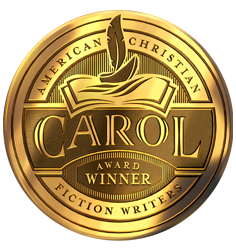Q&A with Chris Fabry
Q: Good stories always begin with a character in terrible trouble. What is the trouble for Grayson Hayes?
Grayson is struggling with dementia. In the first scene, he is sitting in his closed garage in his boxer shorts holding a nail gun, and he can't remember why he's there. The trouble for Grayson is amplified for his wife and those who love him, and the story tries to capture the tension of how to love someone who is slipping away.
Q: Why did you choose to write about memory loss and Alzheimer's?
We are all dealing with this in our families and extended families. But I chose this struggle because the reader is forced to follow Grayson's search to solve a murder mystery as well as discover the truth about his own life. Grayson is trying to uncover the truth and get it down on the page before he can forget it. I found that a really compelling storyline.
Q: Your main character, Grayson, is an unreliable narrator. What problems did you encounter in telling a story from the perspective of someone you can't trust?
It really gave me freedom to enter his world and observe what he thinks about himself. And to an extent, Grayson is all of us. We think certain things that aren't necessarily true but we've chosen to believe them—good and bad and everything in between. And the truth will set you free if you let it. So I enjoyed the journey inside Grayson's mind and the journey of discovering what was really true. I think the reader will as well.
Q: Some of your stories feature a character returning to their hometown. Why is that theme so prevalent in your novels?
Where I grew up, the people, the region, the aromas, the sights—all of this is part of me. So my stories come to life when I begin to write about what I know the best, and that springs from the rich, loamy West Virginia soil where I was planted. In this novel, Grayson's hometown and one friend he remembers is all he can hang on to. And he is obsessed with finding his way back there, even though there is danger ahead that he can't remember.
Q: One huge theme you tackle is suffering and our desire to avoid it at all costs. Tell us about that.
I have equated the "good life" as one without struggle and suffering. I pray for ease and comfort, and if things go haywire, I often think God has abandoned me. But if I look closely at my life, the times of greatest growth have come in times of greatest struggle and turmoil. Grayson faces this by trying to manage the pain for his wife—to relieve her suffering before it gets too great. And the reader understands that by doing this, Grayson is robbing others of a chance to serve him and love him well. My hope is that the reader will see their own life through this story and, instead of avoiding pain, will embrace pain as much as possible to allow God access with his transforming power.
Q: In your stories, you try not to force faith on the reader but make it organic. How did you do that in Saving Grayson?
I've been trying hard with my stories not to "tell" as much as "show." Grayson had a huge spiritual shift late in his life that has now been clouded by his disease. The knock against Christian artists is that they make everything "nice" in the end with everybody coming to faith, which is not reality. All bows are not tied in our lives. So I painted this picture with some missing pieces and unresolved tension. God doesn't take away the pain and the struggle but walks through it with Grayson and others.
Q: There's a man in Grayson's hometown named Pooch. Why did you name him that, and what's his significance?
My middle name is Howard. That was the name of my uncle whose nickname was Pooch. I have been wanting to write about him for a long time, and I finally found the opportunity to have him be the friend Grayson will trust, literally, with his life.
Q: Alzheimer's affects everyone around Grayson. Tell us about his wife, Charlotte, and how she struggles.
Lotty, as Grayson calls her, knows all the things that Grayson has forgotten. So she is carrying the weight of memory in the relationship and the weight of her own mistakes. There is something pure about her love and her decision, at one point in the story, to let Grayson go and find his way. Her story will tear your heart out. It mirrors the stories of spouses of those with Alzheimer's I've heard and read.
Q: Grayson and others in the story have made some big mistakes. You deal with the process of righting wrongs and searching for forgiveness. Do you think that's possible?
I think it's not only possible but incredibly redemptive. The only caveat is that we can't control whether another person will forgive us and allow reconciliation. That makes things scary because we have no guarantee on a human level. But from a spiritual perspective, there's great freedom and vitality that comes when you recognize your mistakes, name them, and then reach out to those you have hurt. I want that in my own life and in the lives of readers.
Q: How did writing this story change you?
I actually did a major rewrite of it after it was finished because it didn't ring true to me. And in that season, I was face down on the pavement, so to speak, wondering how to make it work. And I realized that I was in the same place as many of my characters who were at the end of their own ability to love or make life work. When you get to that point, it's really hard, but it's also good because you've tapped into a big emotional aspect of the story you're trying to flesh out.
Q: What email do you hope you get after someone reads Saving Grayson?
I'm hoping someone will see themselves and say, "I realize that I have controlled the pain and struggle so much that I haven't allowed others to love me well." And perhaps someone will say the same thing about God—that through this story they see how they've kept God at a distance.




